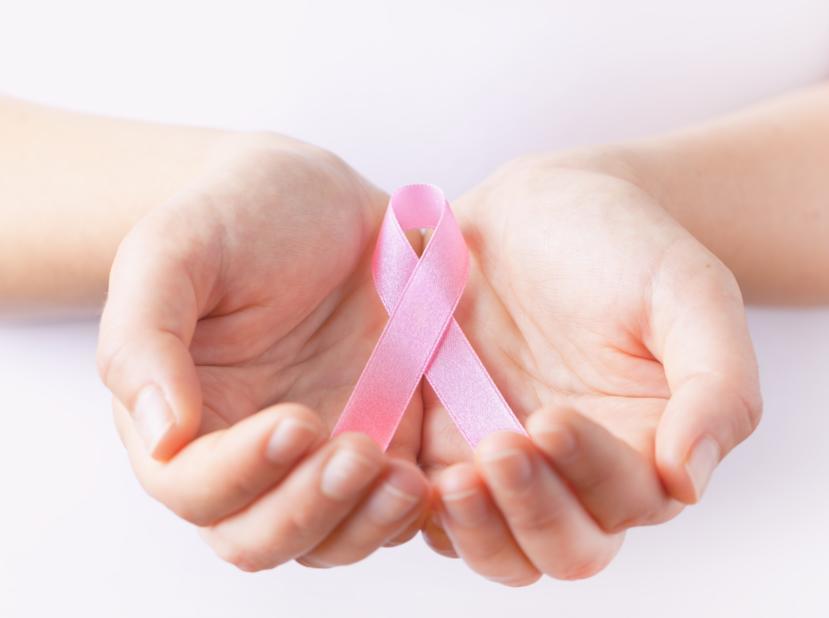Anyone Can Help Breast Cancer Researchers: Here's How

After surviving cancer, many survivors keep on fighting by taking on the roles of patient advocates. An advocate is an individual who defends or supports a cause. In the cancer society, a patient advocate is an individual who supports a cause relating to cancer by increasing awareness of the disease to the public, enhancing the quality of cancer care, and addressing the laws and regulations that affect both cancer research and treatment. Their involvement in advancing cancer research is crucial as it is a prerequisite for research funding. Researchers find that the contributions of patient advocates are invaluable and by incorporating their efforts into thorough research and clinical testing, a variety of perspectives can be uncovered.
According to George W. Sledge Jr., MD, chief of oncology at Stanford University’s Department of Medicine and former president of the American Society of Clinical Oncology – “there was a time when researchers did not recognize advocates’ ability to contribute to scientific discussions to the extent that they do today. However, that has changed dramatically during the past decade. Advocates are increasingly considered a valuable and important part of the scientific peer-review process.” Dr. George W. Sledge Jr. is continuing to focus on collaborating with breast cancer survivors to provide their input about personal experiences of a breast cancer research study or trial.
Dr. George W. Sledge Jr. and Mary Lou Smith, a longtime patient advocate and co-founder of the Research Advocacy Network, have worked as a team for several years in order to determine the role of patient advocates and healthcare professionals in advancing cancer research. When asked about the relationship among patient advocates and cancer research, both stated – “Patient advocates have made, and will continue to make, numerous contributions. For example, they have played an important role in fundraising for cancer research. At a national level, patient advocates lobby Congress to give money to cancer and raise funds through philanthropic organizations. At the local level, there are innumerable examples of advocates raising money for research at just about every cancer center in the country. In addition, advocacy groups educate patients about various types of cancer, why clinical trials are important, where they can access clinical trials, and how they can maintain a good quality of life. In many of these areas, advocacy groups have led the way and have been a positive force for improvement.”
Furthermore, “an increasing number of advocates are also serving on the many advisory boards and committees that comprise some of the infrastructure of cancer research. For example, the National Cancer Institute’s National Clinical Trials Network (NCTN) has advocates involved in their committees. In these settings, advocates bring the patient perspective to the planning and implementation of clinical studies. They participate in discussions about which research topics to pursue and suggest ways to minimize patient burdens in clinical trial protocols, develop patient-friendly consent forms and educational materials, and reduce disparities in clinical trial participation by increasing awareness and using culturally appropriate materials and methods. The advocates also bring a certain level of seriousness to the discussions, emphasizing the impact of the research on the lives of real men and women down the road.”
The relationship between patient advocates and cancer researchers
When asked what opportunities can bring together relationship between patient advocates and cancer researchers, Dr. George Sledge answered – “Despite the positive developments in the relationship between patient advocates and researchers in recent years, there is still room for education on both sides. Advocates can improve their knowledge of the scientific and clinical issues in cancer research so they can be well-prepared to engage in discussions with researchers. Increasingly, advocacy groups have been working toward that end. For example, the National Breast Cancer Coalition has tapped top-level scientists to help advocates better understand the current areas of research and the science behind it. Going forward, having a scientific knowledge base will increase the importance of advocates to the process. Meanwhile, researchers need to recognize the value that advocates bring to the research and reach out to them as valuable allies in this fight against cancer.”
Additionally, Mary Lou Smith contributed her opinion by stating the following – “Researchers and advocates should increasingly engage in joint problem-solving around key research issues, such as boosting participation in clinical trials, enhancing participant informed consent, determining mandatory versus voluntary tissue sample requirements, providing research results to participants, and educating the public and newly diagnosed patients about biospecimen research.” She went on to address additional opportunities, such as pilot programs, which can help enhance research results and patient understanding of cancer research.
Jeannine Salamone, director of patient advocacy at the American Society of Clinical Oncology and member of the Georgetown Breast Cancer Advocates at Georgetown University Medical Center in the District of Columbia, is continuing her efforts on researching new treatments for breast cancer. At the age of 30, Salamone was diagnosed with stage 3 hormone-positive breast cancer. At the age of 40, the cancer recurred and during the duration of her treatment, she underwent radiation, chemotherapy, surgery, and several hormone therapies. What’s more, being a BRCA1 gene mutation carrier, she opted to undergo a prophylactic hysterectomy and a double mastectomy to reduce her chances of cancer recurrence in the future. Salamone said she had no clue as to how women dealt with the hardships of breast cancer and this is what made her want to get involved in patient advocacy.
The Georgetown Breast Cancer Advocates
The Georgetown Breast Cancer Advocates (GBCA) was founded in 2011 and it is led by assistant professor of oncology at Georgetown, Ayesha Shajahan-Haq. She is currently researching how and at what time different types of breast cancers become resistant to drug therapies and whether mathematical modeling can help to predict such resistances. Shajahan-Haq strives to explain how patient advocates, like Salamone, help advance cancer research by sharing their personal experiences on the receiving end. What’s more, Salamone expresses her view on the expertise of Shajahan-Haq. “She trusts us and relies on us, which we certainly appreciate. It means a lot to us to be involved and to know that they’re taking our advice and applying it to their research. I’m really proud of it” Salamone said.
Georgetown and several other research centers are using patient advocates as a part of advancing the process of breast cancer research and treatment. The opportunities of a peer reviewer include participating in research teams, planning and implementing clinical trials, providing feedback, and formulating research policy. Furthermore, they help support breast cancer screening and treatment programs and allow access to education and clinical trials for breast cancer patients.
Final thoughts
Patient advocacy is powerful and influential. Patient advocates are the face of cancer research - they help to increase public awareness of cancer research, all the while encouraging revolutionary change in research. No matter how they get involved, their participation and contributions are essential for funding organizations and helping researchers gain knowledge in the treatment, care, and prevention of breast cancer patients. “I remind my students that I have been lucky enough to know that this is why we’re in the lab. It is not just an academic career. It has a bigger purpose” stated Shajahan-Haq. She went on to address how drug therapies and side effects have allowed her and her students to “realize that it’s not just a test tube, it’s life.”
References
http://www.cancer.net/research-and-advocacy/patient-advocates
http://www.cancer.net/research-and-advocacy/patient-advocates/being-cancer-advocate














